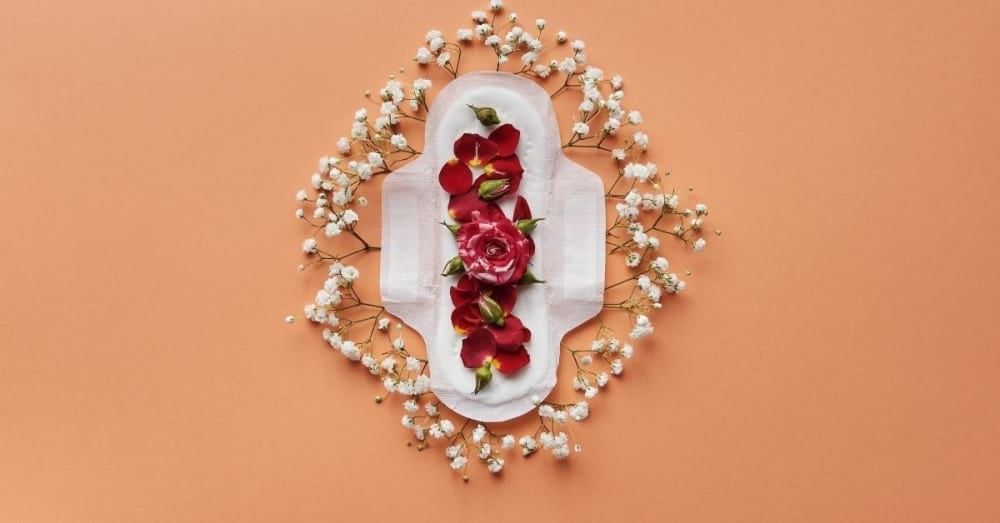How to Get Period Overnight or Fast ~ Gynac's Opinion | Bodywise

Based on your monthly cycle, your period should ideally begin between 21 and 35 days after your last period. Regular intervals can vary. If your normal cycle is 28 days and you haven't had your period by day 29, your period is late.
How to Get Period Overnight?
There are no sure-shot ways to get a period right away or within a day or two. But around the time your period is due, you can induce it with exercise or by experimenting with relaxation methods, or sexual activities to get your periods faster and maintain a healthy hormonal balance.
Women can also regulate their menstrual cycle by using hormonal contraceptives. Many other methods for inducing a period are mentioned on the internet, such as eating pineapple or fenugreek. But there is no evidence that these methods work.
In this article, we will address the question of how to get your period overnight. We will also discuss which methods lack scientific support and the potential risks involved.

How to Get Periods Fast - 7 Best Ways
It’s not possible to get periods overnight but you can definitely get periods faster than usual or regularize it. A woman may want to induce her menstrual cycle for various reasons. Perhaps she wants to complete her period before a vacation or special event. Perhaps she has an irregular cycle and wishes for more consistency to plan a pregnancy. Her period could also be postponed leading to unnecessary stress. Whatever be the reason, there are a variety of methods, including foods to induce periods immediately at home
1. Increase Vitamin C Intake
According to studies, vitamin C aids the production of estrogen. Even though there is no scientific evidence, vitamin C decreases progesterone levels and increases estrogen levels. Estrogen thickens the uterus lining, causing uterine contractions and thus resulting in the onset of periods.
You can easily achieve this effect by taking vitamin supplements or increasing your intake of vitamin C-rich fruits and vegetables. Oranges, papaya, broccoli, grapefruit, and green bell peppers are a few examples of vitamin C-rich foods.
2. Warm Water Bath or a Warm Compress
A hot water bath can help to relax muscle tension and relieve emotional stress. Perhaps this is why we have anecdotal reports of warm water helping you get the period. Applying a warm compress or hot water bottle to your abdomen can stimulate blood flow and help the menstrual cycle begin.
3. Cinnamon
Cinnamon is a menstrual herbal powerhouse. According to a study, cinnamon has anti-spasmodic characteristics, which aid in relieving cramps and menstrual pain. It also acts as a vasodilator, improving circulation in the uterine area, which aids in regulating an irregular menstrual cycle and inducing menstruation in women with irregular periods.
Cinnamon is also said to aid in the onset of labor! Finally, cinnamon reduces pain, menstrual bleeding, nausea, and vomiting in young women with primary dysmenorrhea without causing side effects.

4. Turmeric
Turmeric is another traditional remedy that is believed to induce periods. Although scientific evidence is inconclusive, it is thought to work by influencing estrogen and progesterone levels.
There are numerous ways to incorporate turmeric into your diet. It goes well with chutneys, rice, and vegetable dishes. You can also mix it with milk or water and other spices and sweeteners to make a warming drink.
5. Reducing Stress
A missed or delayed period is sometimes the result of stress. When we are stressed, we end up producing stress hormones like cortisol or adrenaline. These can inhibit the formation of the hormones estrogen and progesterone, both of which are required for a regular menstrual cycle.
Relaxation is the remedy to stress. There are various techniques for relieving stress and enhancing relaxation, and what works for each individual will differ. Suggestions to eliminate stress include:
- Lowering the workload
- Spending time with friends and family
- Exercising
- Taking up a pleasurable hobby
- Utilizing mindfulness or meditation practices
6. Sex
Sex and general vaginal stimulation increase blood movement to the vagina, causing it to contract. Following sexual intercourse, the vagina relaxes, causing the uterus lining to shed. This creates a space that can draw menstrual blood downward.
Orgasm can occur through both vaginal penetration and non-penetrative sexual activity. And, in some cases, this can cause your period to arrive. Semen softens the cervix, allowing menstruation to begin. Regular sexual activity can also reduce stress and anxiety and maintain a healthy hormonal balance.
7. Contraception
A hormonal birth control method is a more long-term solution to the problem of irregular periods. By monitoring the levels of hormones in the body, these contraceptives can provide some certainty about when your period will show up.
When you start or stop using birth control, your cycle may change. Birth control pills constitute the hormones estrogen and progesterone, which inhibit ovum production in your ovaries. After discontinuing the pill, it may take up to six months for your cycle to return to normal.
These can also have adverse side effects. Before making a decision to try them, consult with your doctor.

Reasons Why Your Period Might Be Delayed
Some of the common reasons for consistently delayed periods are described below:
1. You're Stressed
The hypothalamus is a part of the brain that controls your body's stress response system. When your anxiety level reaches a peak, your brain instructs your endocrine system to overflow your body with hormones that activate your fight-or-flight response.
These hormone levels suppress functions, including those of your reproductive system. When you're under a great deal of stress, your body stops ovulating for a while. This lack of ovulation can affect your period regularity.
2. You are Suffering from PCOS
Polycystic ovarian syndrome (PCOS) is a hormonal imbalance resulting from excess male hormones produced by the ovaries. As a result, people with PCOS commonly encounter irregular periods, missed periods, and unforeseen ovulation.
Despite the name "polycystic ovarian syndrome," you don’t have to have cysts on your ovaries to have PCOS. As a result, your menstrual cycle may be affected, and you may experience the following:
- Periods lighter or heavier than normal periods
- A period arriving at inconvenient times and vanishing entirely
- Excessive or rough facial and body hair
- Acne on the face and body
- Hair thinning
- Increased body weight or difficulty losing weight
- Dark patches of skin, most commonly on the neck creases, abdomen, and beneath the breasts
- Armpits and neck skin tags
- Infertility
Your doctor can treat PCOS depending on your symptoms and if you are planning to have a child.

3. You Have a Thyroid problem
Your thyroid gland is butterfly-shaped. It's present in your neck and produces hormones that aid in the performance of many bodily functions, including your menstrual cycle.
Both hypothyroidism and hyperthyroidism can disrupt your menstrual cycle. Hyperthyroidism is, however, more probable with late or no periods for a month or more at a time.
Other signs of a thyroid problem include:
- Irregular heartbeats
- Alterations in appetite
- Unexplained weight fluctuations
- Anxiousness or nervousness
- Slight tremors in the hands
- Fatigue
- Alterations to your hair
- Sleeping difficulties
Dangers of Trying to Induce a Period if You Are Pregnant
Emmenagogues are substances that can aid in the onset of a period. It's important to keep in mind that some emmenagogues are also contraceptives. Having a contraceptive during pregnancy can cause pregnancy miscarriages.
If your period is late because you are pregnant, using an emmenagogue to induce a period may terminate your childbirth. If you think you might be pregnant, don't take these supplements.

When to See a Doctor
Your doctor can correctly diagnose the cause of your skipped or late period and discuss your options for treatment with you. To share with your doctor, keep records of changes in your cycle as well as other health changes. This will enable them in making a diagnosis.
If you experience any of the following symptoms, you should see a doctor right away:
- You suspect you're pregnant
- If you miss three-period cycles in a row
- Your periods end before the age of 45, or you continue to have periods after the age of 55
- You experience bleeding in between periods or after sex
- Periods start changing, become much heavier or erratic,
- Unusually heavy bleeding,
- Fever
- Extreme pain
- Nausea and puking
- Bleeding that lasts longer than seven days
Summing Up on How to Get Period Overnight
To conclude, if you’re wondering how to get periods fast, hormonal emergency contraception is the only dependable method for controlling periods. People may be able to speed up their period by changing their diet, exercising, and relaxing.
Other methods are also popular, though there hasn't been enough research to determine effective remedies to get periods immediately. Make an appointment with your doctor if you have any doubts or issues about causing a period.

FAQs
Can Period Blood Get Stuck?
Yes, period blood can get stuck. The first sign of a "stuck" period is severe menstrual cramps similar to those experienced on the first day of your period. The whole lower abdomen begins to convulse with pain, and standing up straight becomes difficult in some instances. Sufferers are acutely aware of the presence of a blockage in the abdomen that is impeding the flow of period bleeding. Only after two or three days of this ordeal ending will the regular period flow begin.
How Can I Increase My Period Flow?
While there is no sure shot way to increase your period flow other than medicinal advice by a doctor, you can try herbs like turmeric and cinnamon and experiment with sexual activities and yoga to immediately get your periods. Consult your doctor to learn better about your situation.
Can I Wear a Pad Overnight?
If you don’t have a heavy flow, you can wear a pad overnight. Gynecologists recommend changing pads after every 6-8 hours. So unless you sleep well over 10 hours per night or have an incredibly heavy period (which you should discuss with your doctor), you can wear a pad overnight.
Does Pineapple Make Your Period Come Faster?
Pineapple is high in bromelain, an enzyme that is thought to affect estrogen and other hormones. According to a 2017 study, bromelain may help reduce inflammation. This means that it may aid in the treatment of irregular periods caused by inflammation.
However, there is no scientific proof that pineapple or bromelain supplements will cause menstrual flow.
References
- J P H Fee, D R McCance, September 2003; Vitamin C improves endothelial function in healthy estrogen-deficient postmenopausal women - https://pubmed.ncbi.nlm.nih.gov/14567772/
- Maryam Jahangirifar, August 2008; The effect of Cinnamon on primary dysmenorrhea: A randomized, double-blind clinical trial - https://pubmed.ncbi.nlm.nih.gov/30396627/

